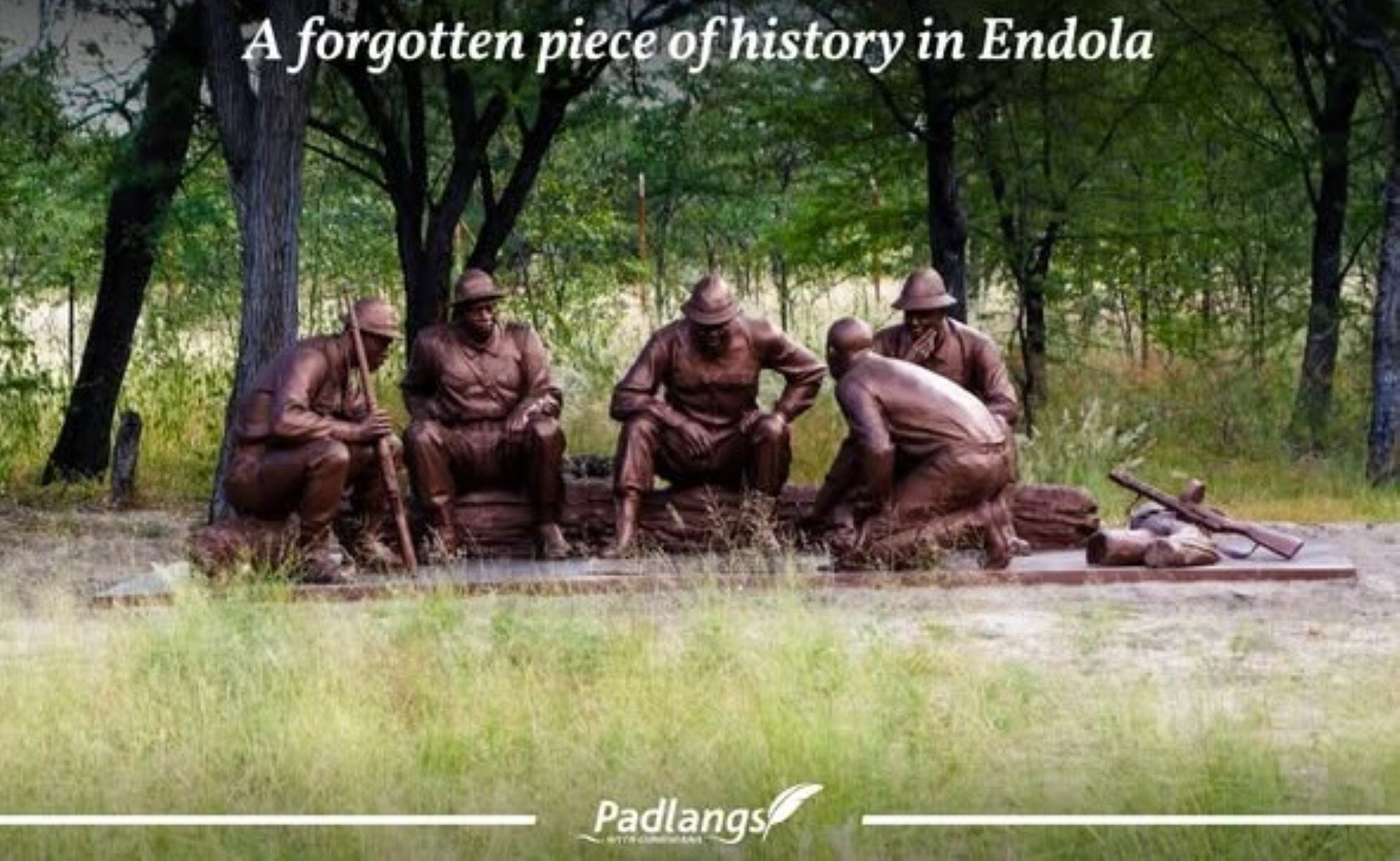Set in southern Namibia, Great Namaqualand, ‘Bittersweet Karas Home’ is the story of three families, the Hills, Walsers & Hartungs, whose lives merge and intertwine in a semi-arid land that presents both hardship and blessings. Over the next few months, we would like to share this bittersweet saga with you from the (as yet) unpublished book.
𝐁𝐚𝐜𝐤 𝐚𝐧𝐝 𝐟𝐨𝐫𝐭𝐡 𝐭𝐨 𝐊𝐢𝐧𝐝𝐞𝐫𝐝𝐚𝐦
In the years of exile, Carl, Margaret and his daughters visited South West Africa several times for business and for court cases. They were there at the time of World War I in June 1915 when the final stage of the South West Africa Campaign was underway. The women managed to cross into Gordonia and return to Kinderdam on their own. Carl Wilhelm assumed he had to surrender to the Germans to be interned in Okanjande, but the officers of the Ukamas station, who knew him well, invited him for supper instead and encouraged him to escape across the border.
The Hills had remained British although they married beyond the colour divide. The young Walser generation was critical of the Germans – the daughters were sure that they would never marry a German – and the sons did not like the sabre-rattling Kaiser Wilhelm. Being ‘Schwyzerdütsch’, Carl Wilhelm shared culture – music, language and some ideas – with the Germans but did not support the political project that the German Reich had embarked on. Although the Walsers in Switzerland and in southern Africa always had a number of German friends, they felt deep contempt for the noisy, beer-swilling, low-class Germans that frequented the bar in Ukamas. Many of their friends were British. Carl’s friendship with Frederick Cornell was especially dangerous. Cornell had observed apparent German violation of the Gordonia border and reported it. Union authorities based the declaration of war and the punitive action against German South West Africa on Cornell’s report.

In 1915, Carl, narrowly escaping internment, returned to the Kinderdam farm. Most of his livestock died on the long trek back to Vryburg.
The war caused waves amongst the family at Kinderdam. Margaret Walser and her daughters began to drift towards Cape Town. Four of her children were to be sucked into the war machinery of World War I; Cyrus William and Charles Adrian would don Union Defence Force uniforms as members of the Citizen Force and in 1917, her daughters, Julia and Leslie Wilhelmina, would volunteer to become Bulawayo Memorial Hospital nurses healing injured and sick soldiers from the war.
𝐑𝐞𝐭𝐮𝐫𝐧𝐢𝐧𝐠 𝐭𝐨 𝐕𝐫𝐲𝐛𝐮𝐫𝐠 𝐭𝐨 𝐰𝐚𝐫𝐬 𝐨𝐥𝐝 𝐚𝐧𝐝 𝐧𝐞𝐰
When the Walser sons, Cyrus William and Charles Adrian, returned to Africa on a London-to-Cape Town-bound ship, they immediately bought tickets for the train ride to Vryburg. They found the appropriate platform at the railway station and boarded the train. They shared their comfortable compartment with a banker from Kimberley, a civil servant from Southern Rhodesia and two boys on their way to a Mafeking boarding school. They had stories to tell and to listen to. When the wheels grinding their rhythm on iron had cradled him to sleep, Cyrus dreamt of his mother cooking on the Dover stove and his father carrying a huge pumpkin into the house. In Vryburg’s modest train station parents and siblings were nervously wondering if they would recognise the boys who had become men in the eight years of separation. Their fears were unfounded. They knew each other immediately and united with tearful hugs.
Vryburg differed from any childhood memory Cyrus held. It was more like Europe, except for the servant class that was never white as it was in Europe. On the basis of his school reports, he was soon offered training courses and employment as a bank clerk. He had missed years of southern African history and attempted to understand the wars that had taken place in his absence. He had missed the 1903-1908 war in German South West Africa. After listening to his family’s reports, he blamed the suffering on Lothar von Trotha (Thilo’s uncle) and the Kaiser who had engaged Von Trotha with his bad track record from China and East Africa. He had also missed the Anglo-Boer War of 1899-1902. He visited the buildings of the Vryburg concentration camp and talked to survivors. At first he used English but was encouraged to speak Afrikaans. After some exposure to the language he soon recalled his Baster Afrikaans and quickly made the shift to Stellaland Afrikaans. He encountered bitterness but also a willingness to embrace a British-ruled future. Some Boers were angry that they had to sign a pledge to abide by the conditions of the May 1902 peace treaty of Vereeniging, but many appreciated the reconciliatory efforts and believed that the British were showing genuine respect. He observed the growth of British-Boer unity that would become the new Union of South Africa on 31 May 1910. He celebrated the new nation and the formation of the Union Forces in 1912.
World War I did not come as a surprise. There was an arms race and changing alliance formation years before the hostilities began. The Walsers in Vryburg knew that the Walsers in London and in New York would side with Britain against the Kaiser. So would Botha as head of the Union. Cyrus and Charlie trusted the British reports and wanted to prove to everybody that they would do their patriotic duty regardless of their German-sounding name.

When Prime Minister Botha began the South West Africa Campaign in August 1914, Cyrus and Charles volunteered immediately, before conscription was enforced. The German armed forces were small relative to the vast reservoir of battle-hardened men the Union of South Africa mobilised. Because General Botha and General Smuts, former Boer war generals, were the commanders, many Boers were attracted to the war effort and revived the powerful commando system at whirlwind speed.
The first storm of war swept across the harbour towns of Swakopmund and Lüderitzbucht. Naval attacks silenced German wireless stations and cut off these coastal towns from the rest of the colony. Then, the situation became complicated. South African soldiers were beaten at Sandfontein and taken captive. Lieutenant Colonel Manie Maritz, who commanded the border forces, switched sides.
Influential Boers like De la Rey and De Wet favoured Germany over Britain. The prophet, Siener van Rensburg, predicted once-and-for-all Boer liberation from the British yoke. Until the ensuing rebellion in the Union of South Africa was quelled in February 1915, the war in German South West Africa could not proceed. Charles Adrian and Cyrus William served in suppressing the rebellion and in the South West Africa Campaign. During the campaign the Walser sons conveyed valuable intelligence about a land and people they knew. Cyrus William became an intelligence officer and cooperated with Nama assistants. At first he thought he had forgotten the Nama language completely but slowly remembered the language from his childhood days on the farm.

The Walser sons entered the country at the head of a conquering army. Where they had once journeyed to move livestock, visit relatives or hunt, they now travelled as part of a war machine. Whereas their comrades-in-arms fought a faceless and nameless enemy, they knew farmers and soldiers. They would be part of the force liberating the Hill and Örtendahl uncles from the camp in Okanjande, where they would have been themselves if they had not departed when they did. They also believed they were liberating the Ukamas farming complex or what was left of it.
The four months of war between March and July 1915 took their toll on the small German forces who accepted final surrender at Khorab. Khorab, however, was not the end of the story for Cyrus William, who had only a short time to reunite with family before departing with General Jan Smuts to take up unfinished business in German East Africa, the only undefeated German colony in Africa. Smuts assembled an army of 13 000 southern Africans including Boers, Brits and Rhodesians and 7 000 Indians and ‘Cape Boys’. They embarked from Durban and disembarked in Mombasa in January 1916.
(Join us every Sunday to take a step back in time and follow the interesting, sometimes sweet, sometimes heart-wrenching tale.)



.png)
.png)




.png)

SUBMIT YOUR COMMENT